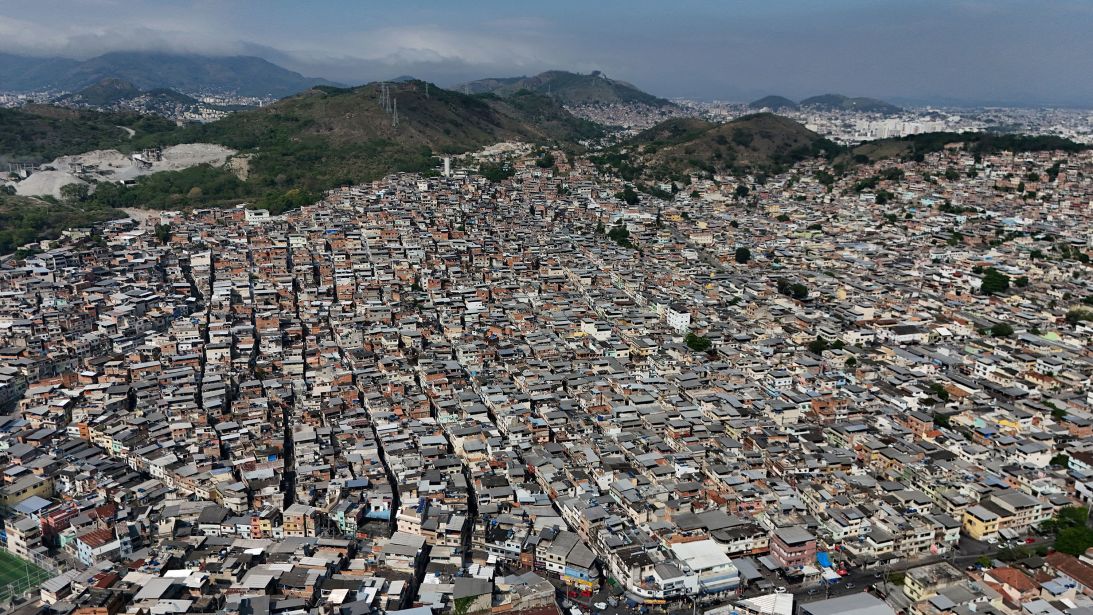World
Deadly Police Raid in Rio Targets Criminal Networks, 121 Dead

On October 28, 2023, a massive police operation dubbed “Operation Containment” unfolded in the favelas of Complexo da Penha and Complexo do Alemão, located on the outskirts of Rio de Janeiro. The operation involved the deployment of 2,500 police officers, soldiers, and snipers aiming to dismantle the Comando Vermelho (CV), one of Brazil’s most notorious criminal organizations. The raid resulted in at least 121 fatalities, including 117 suspected gunmen and four police officers, while approximately 100 individuals were arrested. Authorities reported the confiscation of 118 weapons—91 rifles, 14 explosive devices—and about one ton of drugs.
This extensive operation was prompted by a year-long investigation into the CV, which has expanded its territorial control and contributed to a recent surge in violence. Officials described the raid as a success in efforts to reclaim state authority in these areas. Yet, the high death toll has drawn significant criticism from both local and international human rights organizations, highlighting the contentious debate over the best approach to combat Brazil’s entrenched organized crime.
Community Impact and Responses
The aftermath of the raid has left residents of the favelas grappling with fear and uncertainty. Thainá de Medeiros, a community organizer from Complexo da Penha, expressed deep skepticism about the state’s claims of acting for the greater good. “It’s not the first time we see blood being spilled for a ‘greater good,’” she stated, emphasizing that the promised safety often fails to materialize. She pointed to the pervasive presence of armed gang members who control daily life within the community.
Rafael Alcadipani, a member of the Brazilian Forum on Public Security, elaborated on the pervasive influence of criminal gangs, noting their control over various aspects of life, including the provision of internet services and housing permits. “The state abandons these communities, and then gangs end up gaining even more control,” Alcadipani explained.
The steady rise in violence and the escalation of gang power have rendered government access to these regions increasingly difficult. Despite authorities’ efforts to reassert control, the cycle of violence continues, with many residents feeling trapped between rival gangs and state forces.
Political Justifications and Human Rights Concerns
Political leaders have defended the operation as a necessary measure. Luiz Lima, a congressman representing Rio, characterized the raid as unavoidable, citing the alarming homicide rate in Brazil, which exceeded 38,000 in the previous year. “What happened that day — 117 criminals killed — happens every day in Brazil,” Lima remarked, asserting that many favela residents supported the operation due to the extortion and violence they face from gangs.
In contrast, Daniela Fichino, deputy director of Global Justice, criticized the state’s approach, arguing that it perpetuates a cycle of violence. “Brazil doesn’t have the death penalty, and yet the state acts as if it does,” she said, condemning the execution of young, marginalized individuals as a violation of human rights.
The ongoing debate over how to effectively confront organized crime in Brazil highlights the complex interplay between policing strategies and community welfare. As the state intensifies its militarized response, critics argue that it inadvertently strengthens the very factions it aims to dismantle.
The historical roots of the Comando Vermelho reveal a troubling legacy of violence and instability. Founded in 1979 within the Cândido Mendes Penitentiary, the group originated as an informal alliance for protection among prisoners, evolving into a powerful criminal network involved in drug trafficking and organized crime.
As Brazil continues to grapple with the ramifications of its criminal organizations, community leaders like Medeiros remain determined to seek positive change. “We were about to launch a partnership with UNICEF to help favela youth enter the job market,” she noted, lamenting the missed opportunity for constructive engagement following the deadly operation. The challenges ahead remain daunting, as the cycle of violence persists in a society striving for stability and justice.
-

 Lifestyle4 months ago
Lifestyle4 months agoLibraries Challenge Rising E-Book Costs Amid Growing Demand
-

 Sports3 months ago
Sports3 months agoTyreek Hill Responds to Tua Tagovailoa’s Comments on Team Dynamics
-

 Sports3 months ago
Sports3 months agoLiverpool Secures Agreement to Sign Young Striker Will Wright
-

 Lifestyle3 months ago
Lifestyle3 months agoSave Your Split Tomatoes: Expert Tips for Gardeners
-

 Lifestyle3 months ago
Lifestyle3 months agoPrincess Beatrice’s Daughter Athena Joins Siblings at London Parade
-

 World3 months ago
World3 months agoWinter Storms Lash New South Wales with Snow, Flood Risks
-

 Science4 months ago
Science4 months agoTrump Administration Moves to Repeal Key Climate Regulation
-

 Science3 months ago
Science3 months agoSan Francisco Hosts Unique Contest to Identify “Performative Males”
-

 Business4 months ago
Business4 months agoSoFi Technologies Shares Slip 2% Following Insider Stock Sale
-

 Science4 months ago
Science4 months agoNew Tool Reveals Link Between Horse Coat Condition and Parasites
-

 Sports4 months ago
Sports4 months agoElon Musk Sculpture Travels From Utah to Yosemite National Park
-

 Science4 months ago
Science4 months agoNew Study Confirms Humans Transported Stonehenge Bluestones









